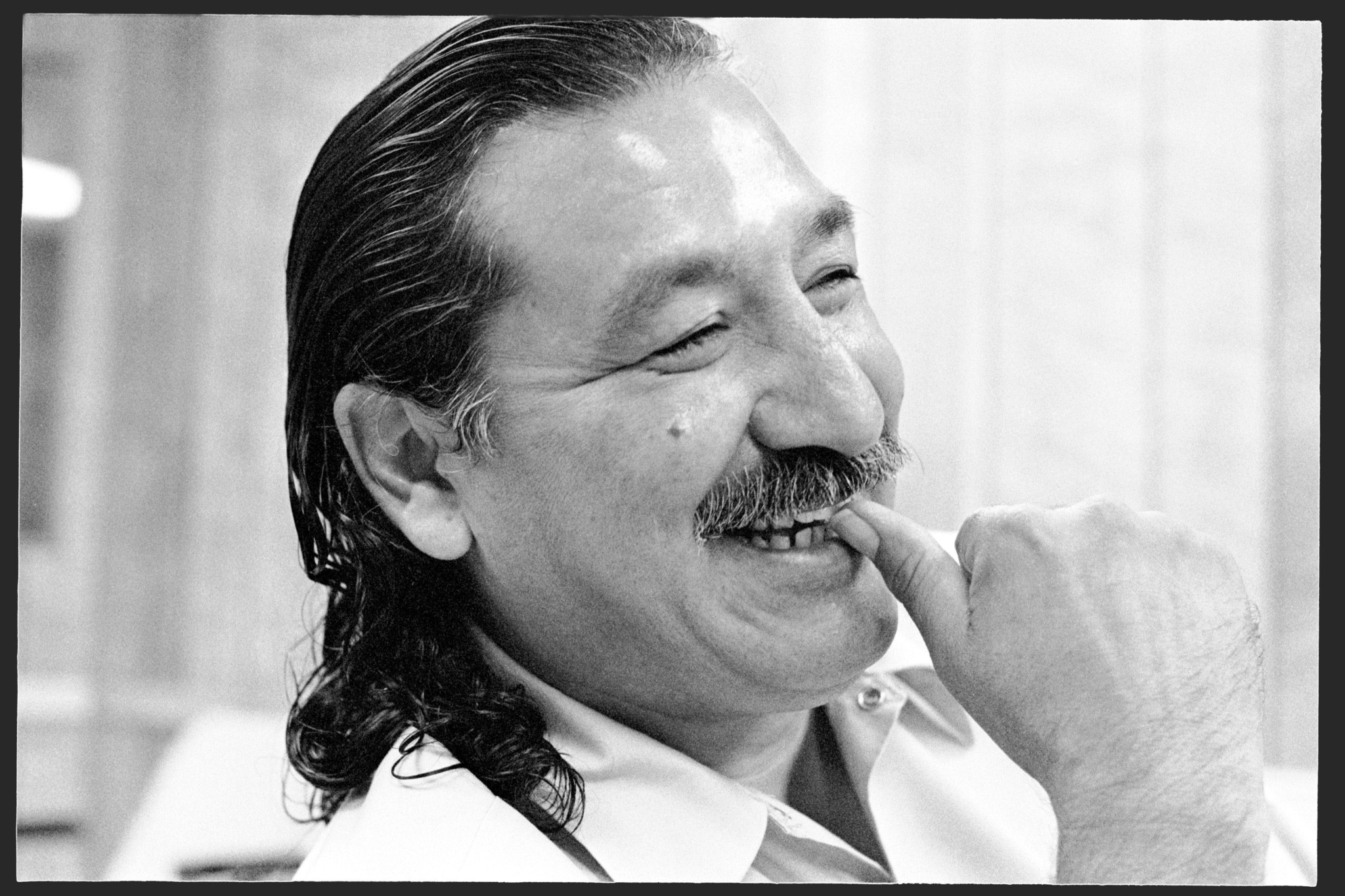Leonard Peltier, a Native American activist, has been imprisoned in the USA for nearly 50 years. His Bureau of Prisons Register Number is 89637-132. Peltier has spent part of his sentence in solitary confinement and maintains his innocence.
Now 79 years old, Peltier suffers from several chronic health issues, including one that is potentially fatal. His new parole hearing on June 10 might be his last chance for freedom. We urge the Parole Commission to grant Leonard Peltier parole.
Here’s what you can do:
Write to the Acting Chairperson and the Commissioner of the US Parole commission urging them to grant Leonard Peltier parole in the interest of justice and mercy.
Write to:
Acting Chairperson, Patricia K. Cushwa
Commissioner Charles T. Massarone
U.S. Parole Commission
90 K Street NE, 3rd Floor
Washington DC 20530, USA
Phone: +1 202-346-7000
Email: USParole.questions@usdoj.gov
Salutation: Dear Acting Chairperson Cushwa and Commissioner Massarone
And copy:
His Excellency David Louis Cohen
Ambassador
Embassy of the United States of America
490 Sussex Drive
Ottawa, ON K1N 1G8
Tel: (613) 238-5335 / 688-5335 (24h) Fax: (613) 688-3082
Background to Leonard Peltier’s case
Leonard Peltier, an Anishinaabe-Lakota Native American, was a member of the American Indian Movement (AIM), which promotes Native American rights. On June 26, 1975, during a confrontation involving AIM members on the Pine Ridge Indian Reservation in South Dakota, FBI agents Ronald Williams and Jack Coler were shot dead.
Joseph Stuntz, a Native American and AIM member, was also killed that day. His death was never investigated, and no one was charged.
In 1977, Leonard Peltier was convicted for the murders of Agents Coler and Williams and sentenced to two consecutive life sentences. Peltier has always denied killing the agents.
Key witness and evidence issues
Myrtle Poor Bear, a Lakota Native woman, initially claimed to have seen Peltier kill the agents. Her statement led to Peltier’s extradition from Canada. However, she later retracted her testimony, stating it was coerced through threats and harassment from FBI agents. Although her testimony could have been crucial, the judge did not allow her to testify at Peltier’s trial, citing potential prejudice to the government.
In 1980, Peltier’s lawyers received ballistics evidence through a Freedom of Information Act lawsuit, which had been withheld by the prosecution. Despite this, the U.S. Court of Appeal for the Eighth Circuit denied Peltier a retrial in 1986, acknowledging some FBI misconduct but unwilling to suggest further improprieties.
Health and support for clemency
Leonard Peltier suffers from numerous health issues, including kidney disease, Type 2 diabetes, high blood pressure, a heart condition, degenerative joint disease, and vision problems.
In 1986, a stroke left him virtually blind in one eye. He also has a life-threatening abdominal aortic aneurysm and uses a walker due to limited mobility. In 2022, he contracted COVID-19 and remains at risk.
In 2015, Nobel Peace Prize winners, including Archbishop Desmond Tutu, called for Peltier’s release. Other supporters include the Standing Rock Sioux Tribe, the National Congress of American Indians, various Tribal Leaders, the U.N. Working Group on Arbitrary Detention, and Members of Congress. Peltier’s attorney applied for clemency to President Biden in July 2021, but as of May 2024, no decision has been made.
Amnesty International supports calls for Leonard Peltier’s release due to the issues at his trial, his long imprisonment, his consistent claims of innocence, and his severe health problems.
Please take action as soon as possible until June 10, 2024! The UA will be duly updated should there be the need for further action.

























